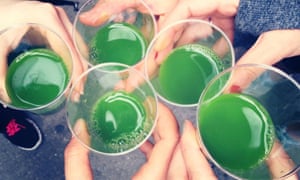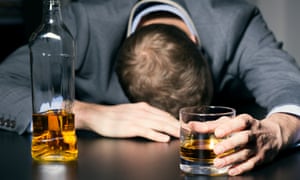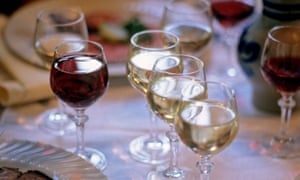Alcohol. Fun, isn’t it, for various reasons. The Christmas holidays are a period of particularly heavy drinking for many of the UK population, so much so that January often feels like one long national hangover. This often combines with the sense of “starting afresh” and the ritual of New Year’s Resolutions and results in a period of abstention. In recent years, it’s become fashionable to swear off alcohol for the whole of January, often (but not always) as part of an overall effort to improve general fitness and lose weight.
But, is this necessary? Or is it possible to have your pint and down it, and lose weight while carrying on indulging in the booze?
On paper, it looks like a big ask. It’s easy to see why people find giving up drinking a bit of a challenge. It has pleasurable effects, it aids social interaction, in the UK at least it’s often expected that you’ll drink at social occasions, and if you’re a regular drinker then you’re brain and body will likely have adapted to expect a regular intake.
But all this comes at a cost to the body. Alcohol is second only to fats in terms of the amount of energy per mass it contains. In plain English, alcohol delivers about 7 calories per gram consumed (fat delivers closer to 9 calories per gram). And that’s just the pure alcohol, the ethanol, in your drink. The stuff around it (the beer, the stout, the cocktail ingredients, the mixers) add substantially more. What’s more, these are “empty” calories. The point of drinking is to get the intoxicating effect, not to nourish the body in some way, so physiologically we’re just pouring pointless calories down our throat.
However, scientific analysis offers some way to potentially “game the system”, and not just lose weight while continuing to drink, but use the effects of alcohol to increase your chances of getting in shape! Here are a few suggestions.

Pub runs
One of the problems with drinking from a weight-gain perspective is that, as well as pointless calories, it also involves very little physical movement. Sitting down and talking for hours isn’t exactly good cardio. You need to engage in a lot more physical movement if you want to burn off those calories.
So, if you really do fancy a drink, don’t stroll to the local, jog there. In fact, don’t go to your local, pick a pub on the other side of town and jog there instead. Or pick several pubs and sprint from one to the next each time you finish a drink, more of a pub sprint than a pub crawl. This has the added bonus of, at the end of the night, if you arrive at the last pub red-faced, struggling to speak or walk, you’ll fit right in.
You might look at this and decide it’s not worth it just for a drink so opt to stay in. If so, fine. That’s good for your health too. So really, you can’t lose here.
Indulge in impulsivity
One thing alcohol is known to do is make people more impulsive. The complex interaction between alcohol and our brains and genes means our higher-reasoning areas and those that supress impulsivity are often hampered by drink, resulting in us doing and saying things we’d normally shy away from.
You can exploit this effect to improve your health by signing up for fitness classes, marathons, Tough Mudder runs, and things like that. You may have consumed a lot of empty calories but thanks to drink you’re now going to burn those off, and then some.
Obviously, once you sober up, you could just change your mind. It’s harder than you think though, as our brains are reluctant to go back on a decision once it’s made. This is especially true if you made the decision in front of people, who will now think worse of you if you go back on it.
When you wake with a pounding head saying “What the hell did I agree to last night?”, it may well have been good for you in the long run.

Embrace the anger
One other unpleasant effect of alcohol, which ties in with greater impulsivity, is an increase in irritability and anger. There are many neuropsychological explanations for this; an inability to correctly work out people’s intentions from their behaviour, a drop in ability to plan actions and predict consequences, releasing pre-existing stresses and issues that you usually supress, and so on.
One consequence of increased anger is an increase in “approach” motivation. The brain seems to have two separate motivations systems, approach and avoidance. Things we want to deal with, we’re motivated to approach. Things we are wary or scared of, we’re motivated to avoid. Anger increases the power of the approach system, meaning we “get stuck in” where we otherwise wouldn’t.
So, if you’re drunkenly tempted to pick a fight with the biggest bruiser in the room, go ahead. The realisation of what you’ve done will soon get through your alcohol-infused brain, triggering an adrenaline-rush fight-or-flight response. You’ll have no choice but to get moving to stay ahead of the enraged beast, burning many calories as he chases you with a pool cue.
Blank the workout
Alcohol, at the right doses, can and does disrupt the ability to form new memories. So, if you have a gym session or exercise routine planned, you could dry quickly getting so drunk beforehand your brain can’t form new memories, but you can still complete your workout before passing out from intoxication. When you eventually wake up, you should have no memory of exercising, so will think you still need to do it. Voila; you get to drink and actually double the exercise you partake in.
It’s a delicate balancing act though, to get the timing and intake just right to hit that narrow window of usefulness. So practice is needed, which may well render the whole thing pointless.

I’ll be honest, I’m really reaching here. Photograph: Thorben Maier / Alamy Stock Phot/Alamy Stock Photo
Try moderation
You may think all these suggestions fall into the category of “terrible” or maybe even “downright hazardous to health, life and liberty”. And you’d be right.
Truth is, alcohol isn’t ever really going to be helpful if you’re trying to lose weight and get in shape. That’s just not how our bodies work. But that doesn’t mean you have to cut it out entirely. Each to their own, and many people just cut down and/or increase their physical activity, or some combination of the two. You need to find what works for you.
Of course, this involves navigating the onslaught of “expert” advice and trendy “diets” we are bombarded with at this time of year. It’s enough to drive you to drink.
Dean Burnett ‘s book The Idiot Brain isavailable now in the UK,USA,Canadaand many other countries.
He is appearing at Dry Humour, an alcohol-free comedy night on Friday the 13th in Cardiff, in aide of Alcohol Concern.
Keep lit: how to lose weight without giving up alcohol | Dean Burnett
Hiç yorum yok:
Yorum Gönder